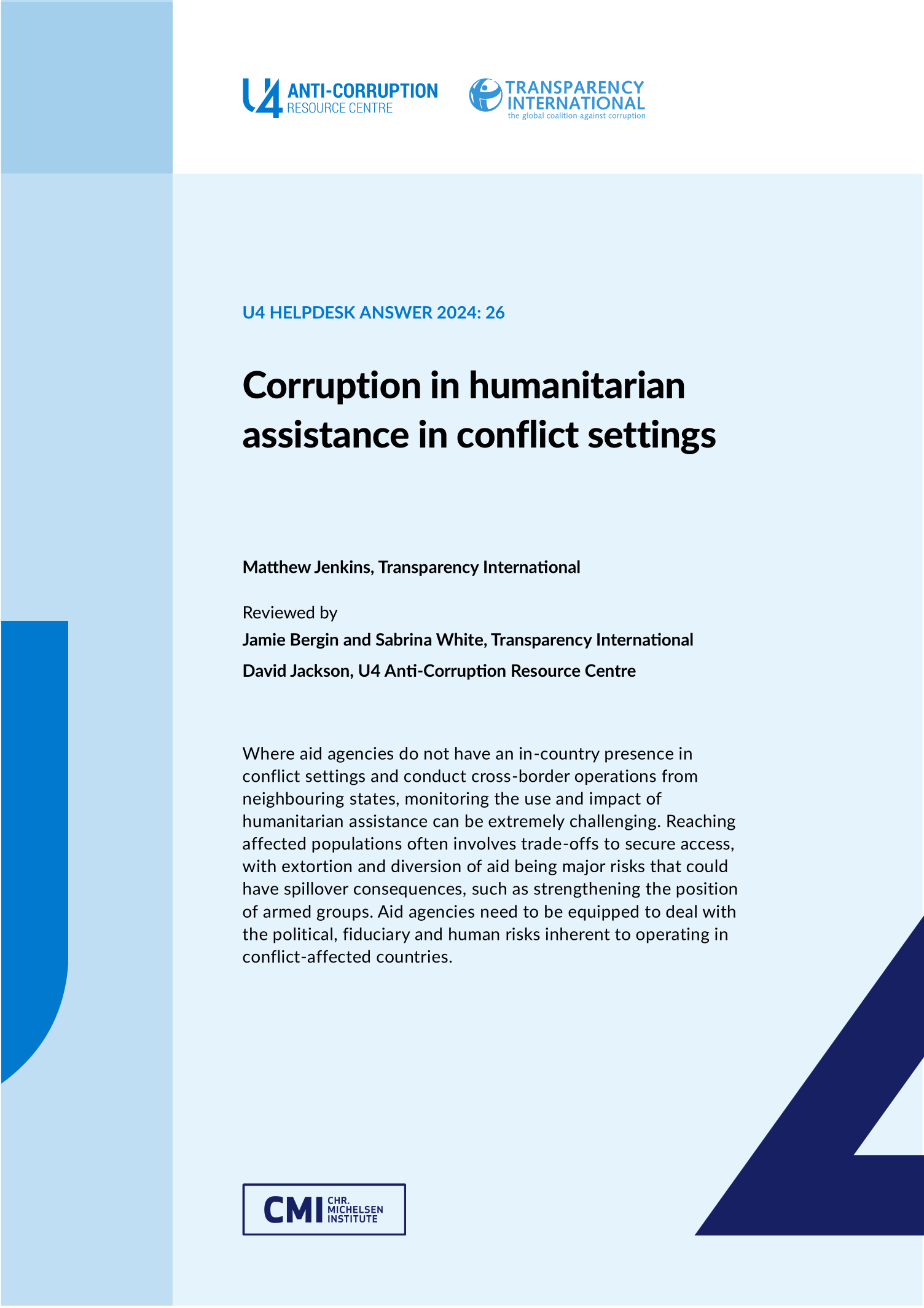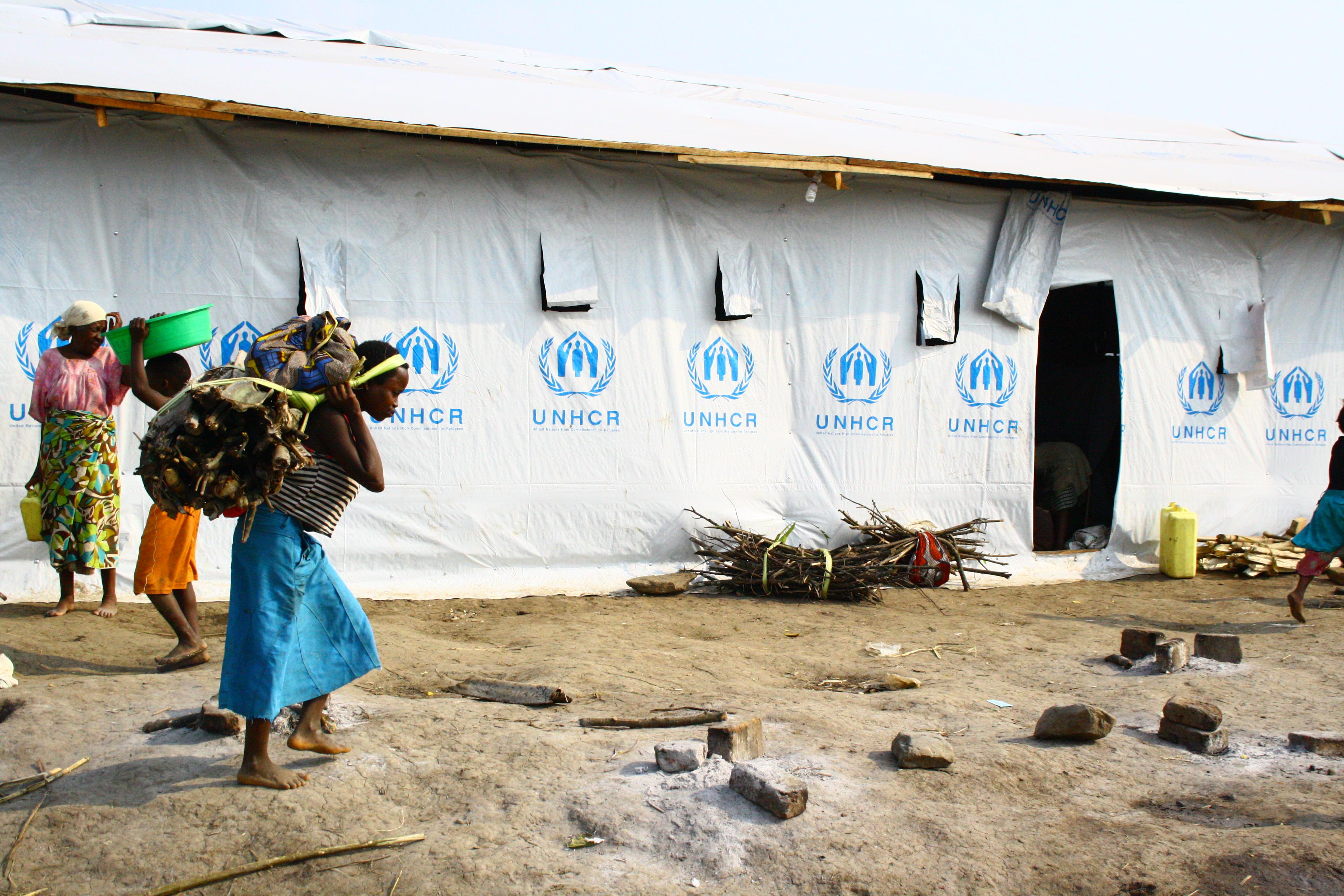Main points
- Numerous factors make conflict settings arguably the most difficult environment in which to deliver humanitarian assistance. These include denial of access, predatory political economies, acute need, fragmented political landscapes, physical barriers, and the challenges of remote monitoring and international coordination.
- Survey evidence indicates that affected communities perceive corruption to be one of the most pressing issues in humanitarian aid, with aid recipients commonly reporting that corruption, bias and favouritism are major impediments to receiving adequate assistance (Haver & Carter 2016: 12).
- Nonetheless, the actual incidence of embezzlement, bribery and leakage in humanitarian aid is believed by some experts to be notably lower than perceptions would indicate (Kenny 2017; 2024a). The glaring exception is the phenomenon of aid diversion by armed groups. In territories marked by an absent or contested government authority, ‘insurgent taxation’ is commonly levied on all incoming sources of revenue, whether humanitarian assistance, development aid, private investment or community generated resources (Bandula-Irwin et al. 2022; Cliffe et al. 2023: 31; Guggenheim & Petrie 2022). Likewise, in regime-controlled areas, authorities have often proven adept at manipulating and co-opting the flow of humanitarian aid. This has been extensively documented in government territories in Syria (Cheng 2022; Haid 2019; Hall et al. 2021; Kayyali 2019; Syria Justice and Accountability Centre 2019; Syrian Legal Development Programme & Observatory of Political and Economic Networks 2022).
- Corruption risks are likely to materialise during the process of negotiating access to at-risk populations as well as during all stages of the delivery chain. Prominent forms of corruption include extortion and diversion by armed groups, interference in the registration of beneficiaries, unethical procurement practices, embezzlement during transportation and storage of relief goods, and sexual corruption.
- Different delivery models can be considered by aid agencies, with the riskiest involving arrangements with parties to the conflict, such as government agencies or insurgent forces. There is growing evidence that even in conflict zones, channelling aid through local NGOs and community based models can be effective. Nonetheless, each delivery model entails its own specific set of risks, and the role of intermediaries and informal networks should not be overlooked.
- Various mitigation measures can help aid agencies reduce the risk that the cross-border humanitarian aid they provide is misappropriated by corrupt actors or abused in a way that fuels violence. These include both technological techniques, such as the use of GPS tracking, satellite imagery, GIS systems and blockchain, as well as more traditional oversight approaches, third-party monitoring, grievance mechanisms and organisational capacity building.

